St. Mary’s College of Maryland LEADs the Way
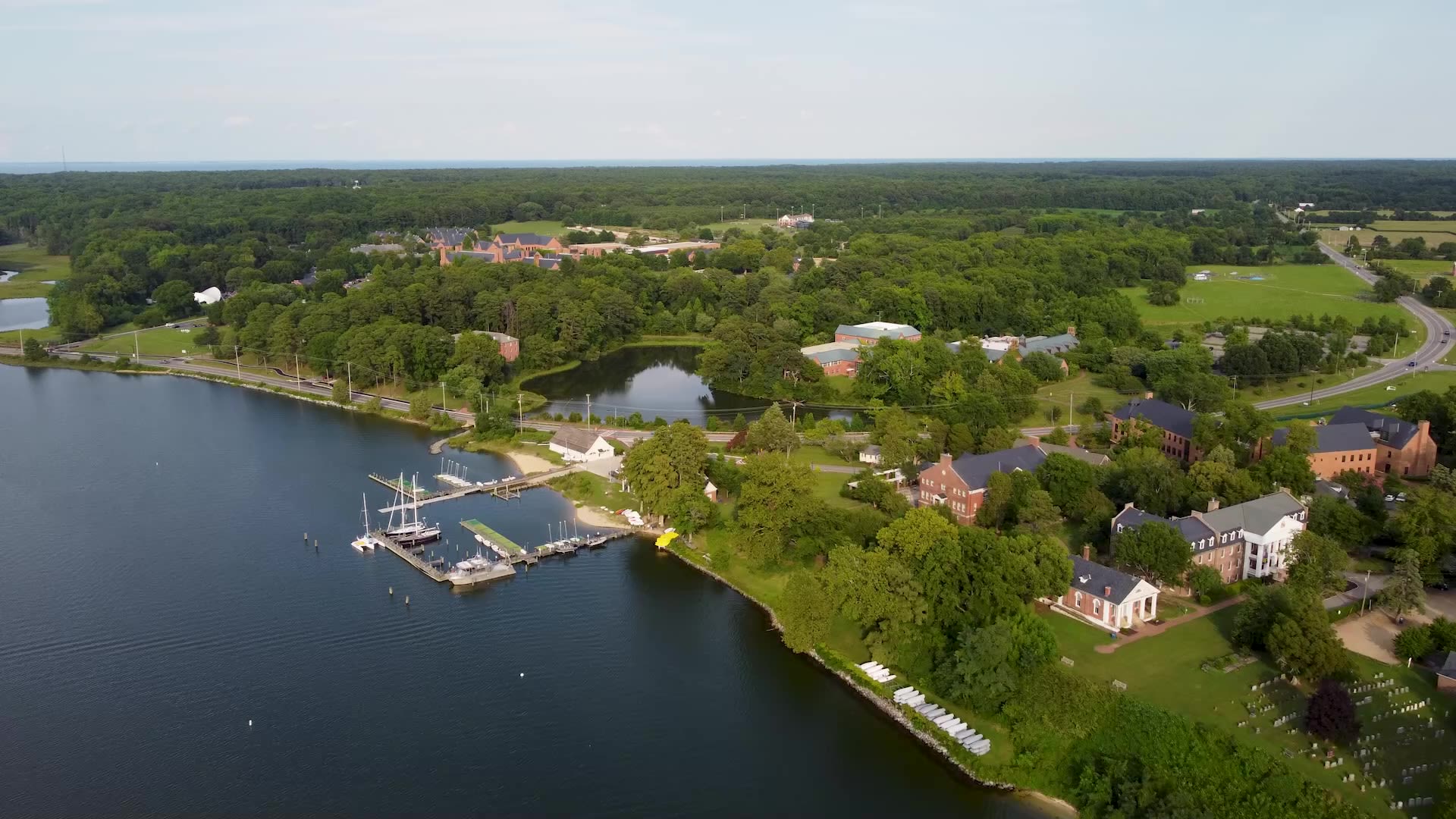
Tuajuanda C. Jordan has been president of St. Mary’s College of Maryland, the National Public Honors College, since 2014. During her tenure, she has overseen the development of three strategic plans that have strengthened the College’s charter as Maryland’s public honors college – the first public honors college in the nation. The current strategic plan, The Rising Tide, is transformational and is centered around the College’s signature LEAD (Learning through Experiential and Applied Discovery) initiative to solidify the College’s position as the National Public Honors College. President Jordan shares her thoughts on LEAD and its place in today’s higher education landscape in a recent interview.
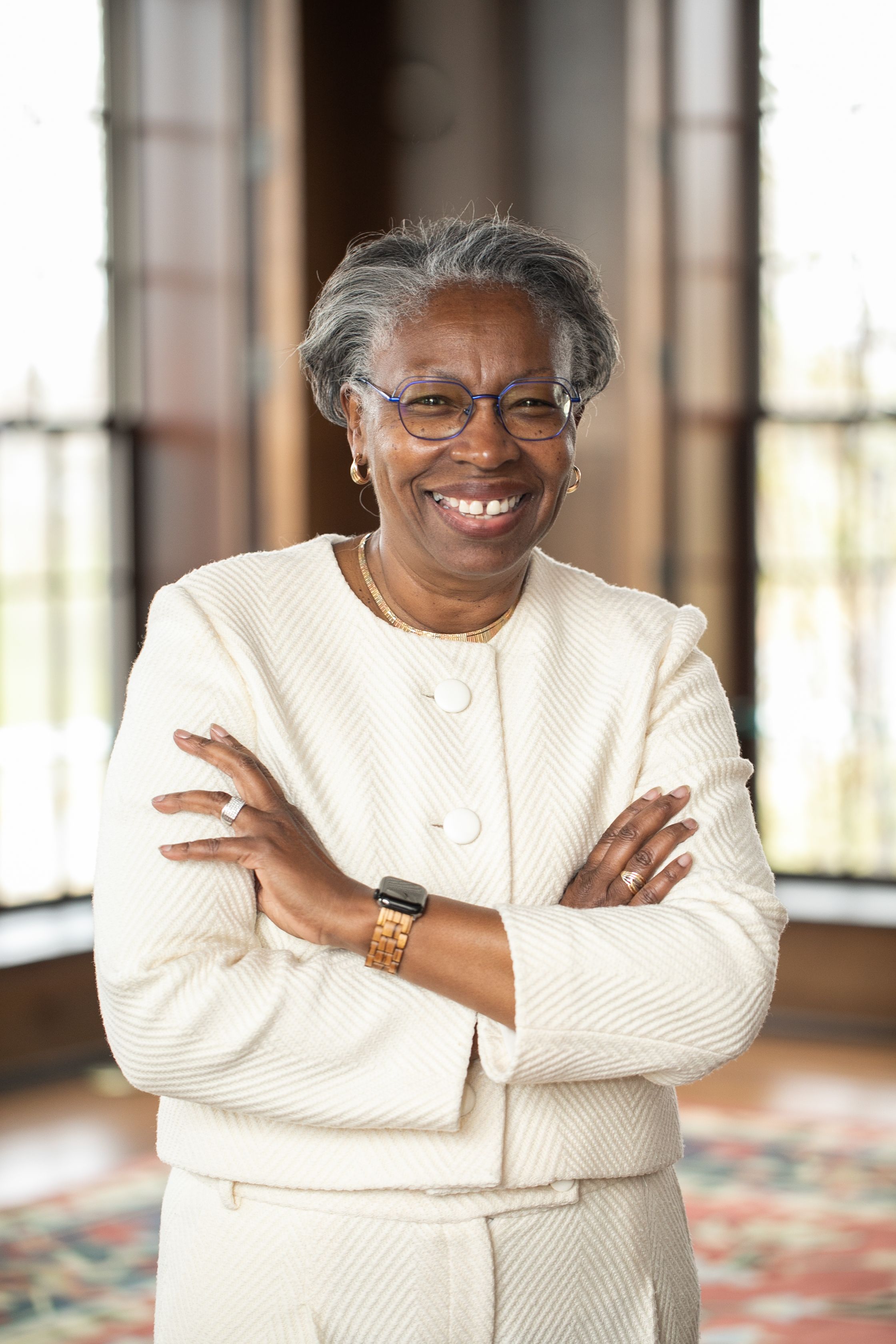
Dr. Tuajuanda C. Jordan has been president of St. Mary’s College of Maryland since 2014.
Dr. Tuajuanda C. Jordan has been president of St. Mary’s College of Maryland since 2014.
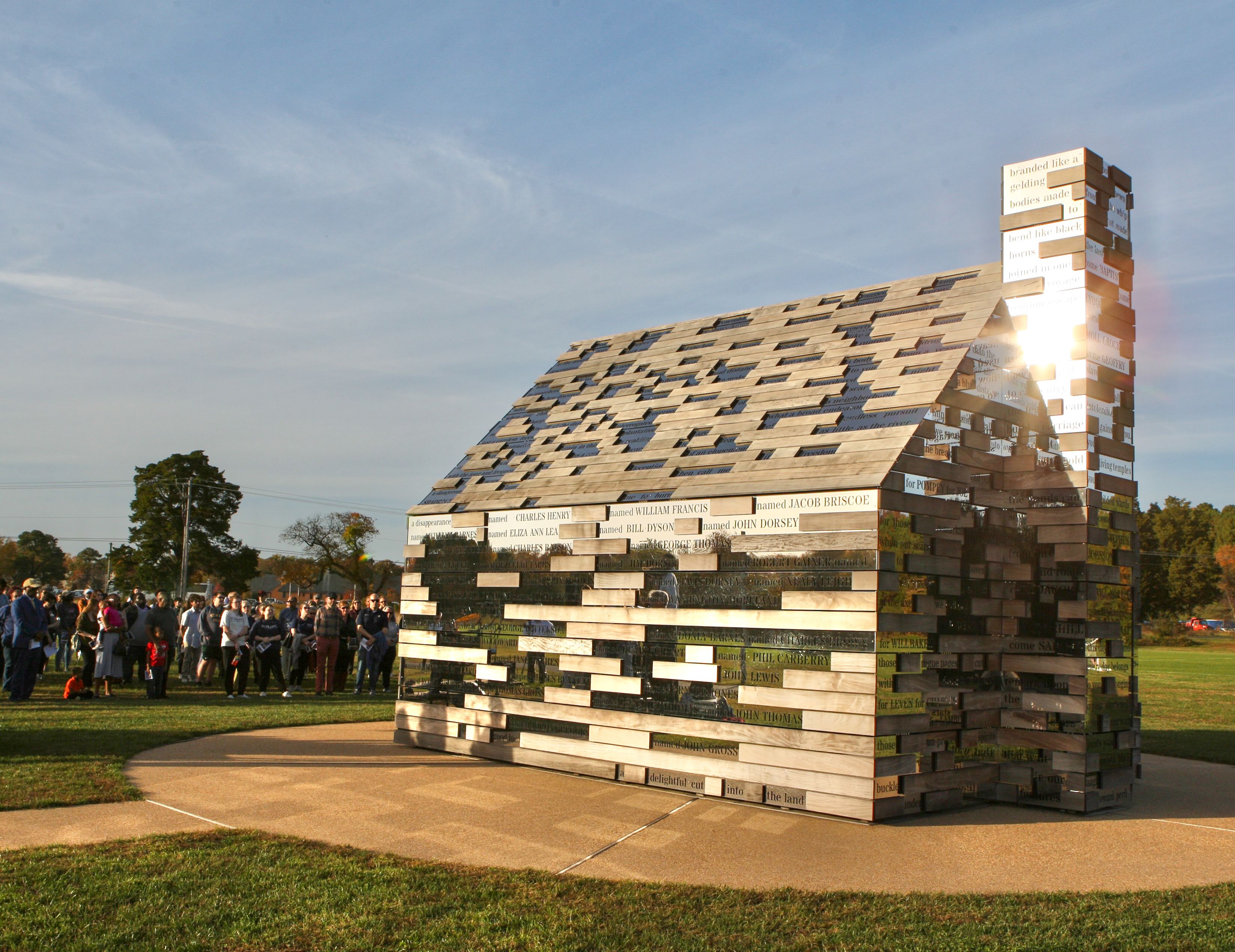
The Commemorative to Enslaved Peoples of Southern Maryland was dedicated on the St. Mary’s College of Maryland Campus in 2020. In the core curriculum, students can explore the concept of justice in terms of the lived experiences through which we come to know injustice and how to respond to it.
The Commemorative to Enslaved Peoples of Southern Maryland was dedicated on the St. Mary’s College of Maryland Campus in 2020. In the core curriculum, students can explore the concept of justice in terms of the lived experiences through which we come to know injustice and how to respond to it.
Q: What is LEAD?
PRESIDENT JORDAN: LEAD is an initiative that allows all students to take advantage of an honors-level academic experience seamlessly blended with professional skills development. It is essential to our goal of graduating thinkers and doers, backing up classroom theory with real-world experiences. Weaving credit-bearing courses and hands-on opportunities in each major, students develop multi-disciplinary expertise—just as employers demand specialization complemented by big-picture thinking. LEAD’s Honors College Promise is key: a guarantee that every student will have an opportunity to engage in a research, internship or international experience.
Q: How does this real-world approach fit the liberal arts tradition?
PRESIDENT JORDAN: As we think about the traditional liberal arts, one of the criticisms has always been that students come out unprepared for employment, and we find that that is not necessarily true. We know that liberal arts colleges prepare students for work (or careers). Through LEAD, we are preparing our students for their first job and their second and third careers. From day one, we target every one of a student’s four years to cultivate the very skills employers desire but do not expect to teach their employees---like critical thinking, problem solving, team collaboration.
As an honors college, students are engaged in their learning at a very high level. Sometimes students have a hard time translating that knowledge into the practical skills that employers want. By taking the LEAD approach, they not only get their disciplinary knowledge, but also the ability to connect the dots across disciplines. To this end, we’ve developed core inquiries that provide an integrative pathway for students to explore a central topic through a multidisciplinary perspective combining four or five classes.
For example, what if a student is interested in climate change? They get to ask a big question about climate as part of a core inquiry. Using what they learn from perspectives in environmental studies, chemistry or biology, computer science, philosophy or history, and English or art, they think about climate change much more broadly, better enabling them to develop practical solutions to today’s toughest challenges.
Q: How has LEAD transformed St. Mary’s College of Maryland?
PRESIDENT JORDAN: LEAD helps us deliver our core beliefs: all students must be equipped with the power of collaboration, encouraged by their curiosity, trained in critical thinking, and challenged to seek out new perspectives. An ever-evolving concept, LEAD has not only been advantageous to our students, but it also helps the faculty become stronger partners. They’re more creative and innovative as they’re creating connections throughout the curriculum, sharing resources, and engaging more deeply to help students realize those connections. We live in a shared world where people can no longer think in silos; we need to think across disciplines, and we need to instill this practice effortlessly in our students.
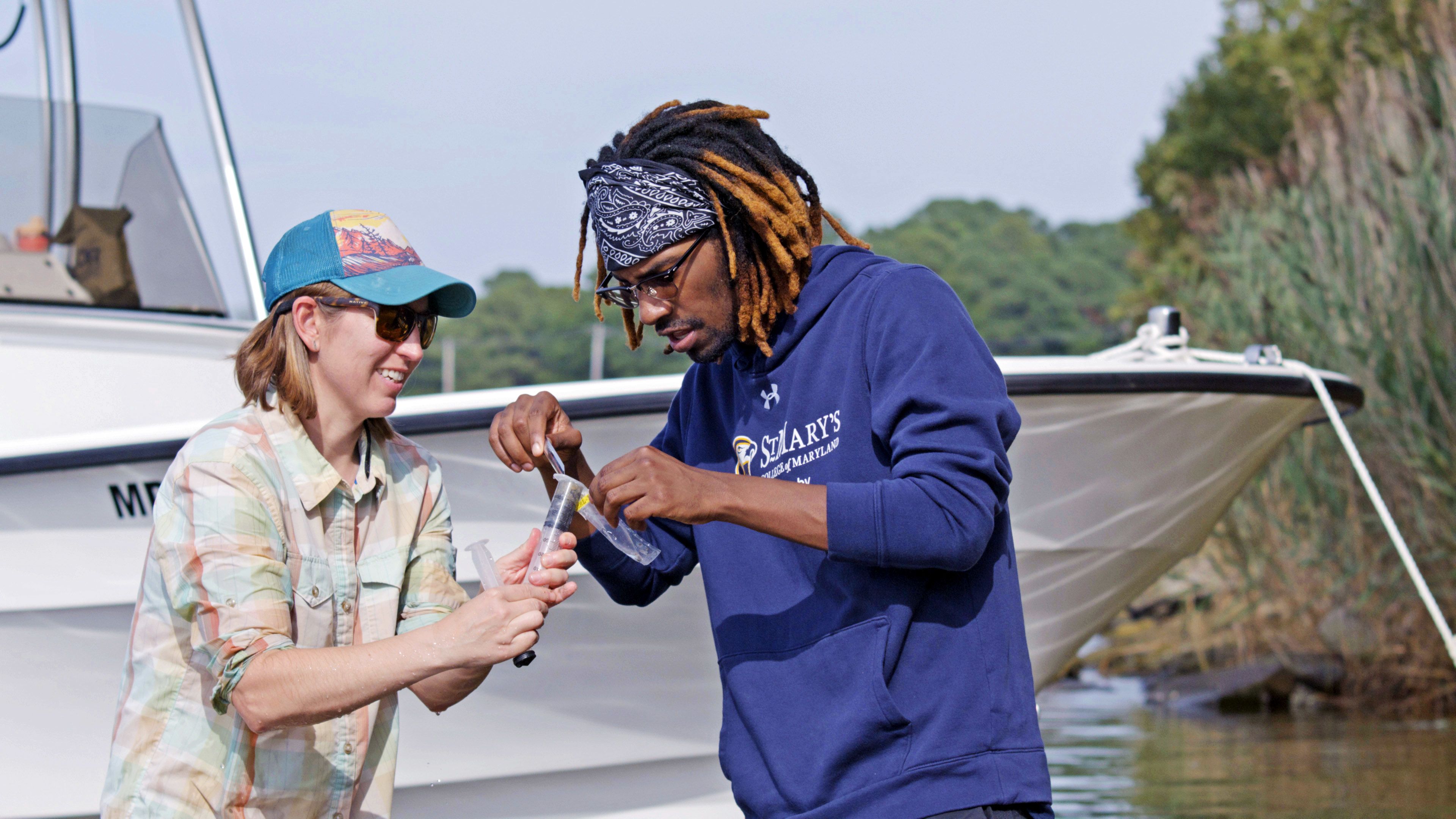
Marine science - a new major added as a result of strategic planning - is one of many avenues open to student undergraduate research experiences under LEAD.
Marine science - a new major added as a result of strategic planning - is one of many avenues open to student undergraduate research experiences under LEAD.
LEAD is also strengthening our community engagement and outreach, important to our public mission. Our external internships and research experiences as part of our Honors College Promise happen from close collaboration with regional firms and alumni networks. To add experience to theory, community members join the LEAD initiative in the first year to share first- hand career stories and tips, and to teach some core sections focusing on their practical knowledge.
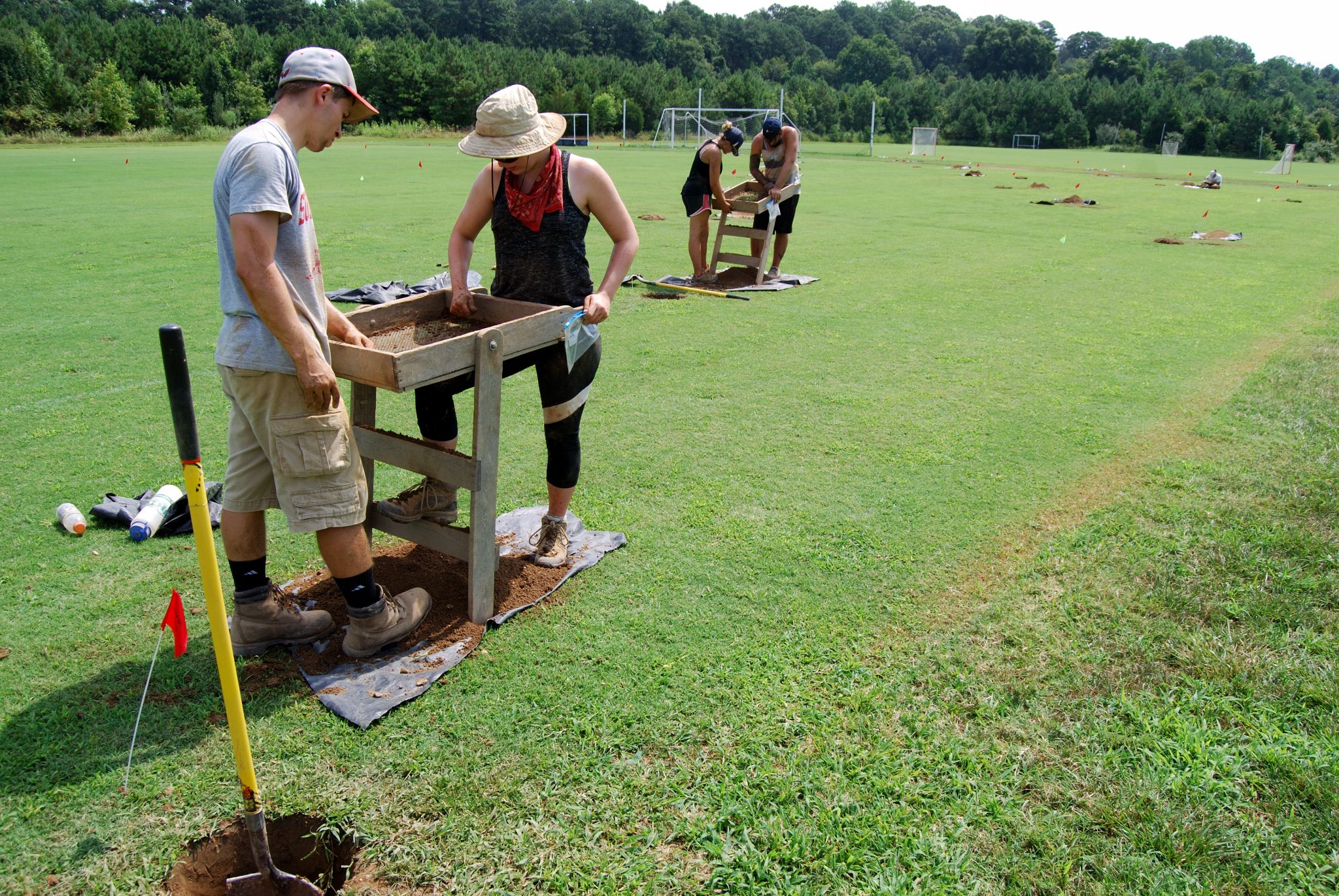
One of many LEAD opportunities for St. Mary's College of Maryland students includes opportunities to participate in archaeological excavations on the historic campus and throughout the region.
One of many LEAD opportunities for St. Mary's College of Maryland students includes opportunities to participate in archaeological excavations on the historic campus and throughout the region.
Q: How can programs like LEAD influence the future of public liberal arts education?
PRESIDENT JORDAN: Oftentimes, when people think about the liberal arts, they don’t realize that there are many public liberal arts colleges. Not only do these institutions have as their mission the excellence that one expects to have in a liberal arts education, but they’re also laser-focused on access and affordability. I am presently serving as president of the Council of Public Liberal Arts Colleges (COPLAC), a consortium of 30 public liberal arts colleges and universities across the U.S. and Canada. This summer, COPLAC is convening a summit of public liberal arts institutions not only to help us to strengthen our partnerships, but to demonstrate to the higher education world more broadly the power and necessity of programs like LEAD in producing critical thinkers, agile leaders and in-demand employees. We look forward to sharing the results of the consortium’s work this summer on making a 21st-century liberal arts education available to students across all socioeconomic sectors – so stay tuned!
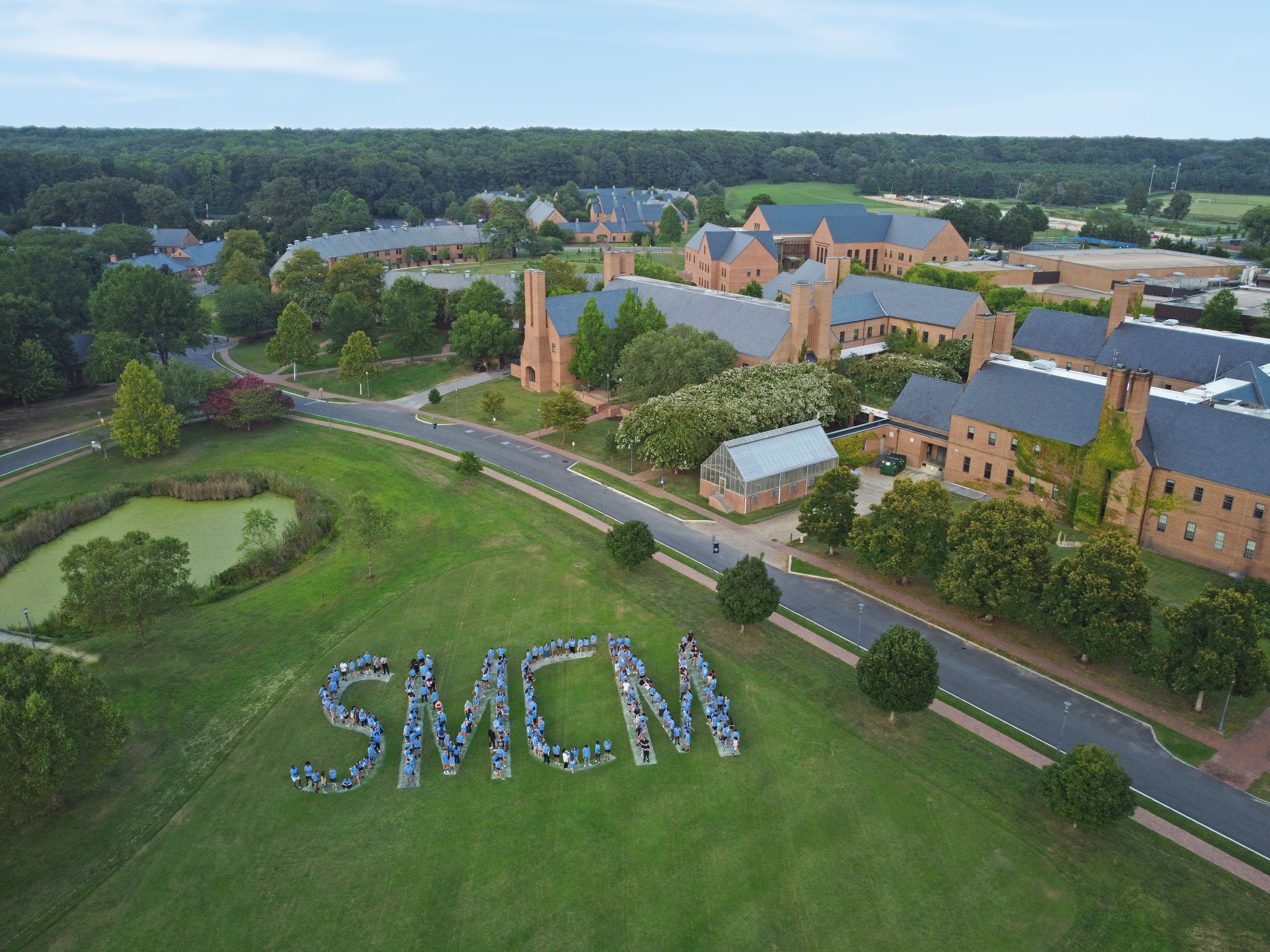
This content was paid for and created by St. Mary College of Maryland. The editorial staff of The Chronicle had no role in its preparation. Find out more about paid content.



